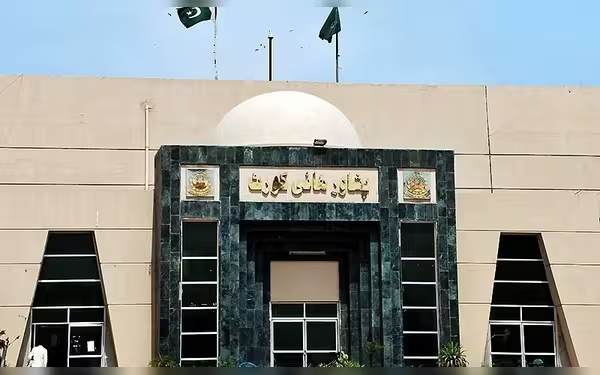Saturday, November 16, 2024 08:50 PM
Peshawar High Court Prioritizes Political Cases Over Citizens' Justice
- Chief Justice highlights neglect of poor petitioners' cases.
- Court aims to resolve 2015 cases by December 2024.
- Judiciary urged to prioritize vulnerable citizens over political disputes.
 Image Credits: thefrontierpost
Image Credits: thefrontierpostPeshawar High Court faces challenges prioritizing political cases over justice for ordinary citizens, as Chief Justice calls for urgent reforms.
PESHAWAR: The Peshawar High Court (PHC) is currently facing a significant challenge as it finds itself inundated with political cases, overshadowing the pleas of ordinary citizens seeking justice. Chief Justice Ishtiaq Ibrahim expressed his concern during a recent hearing, stating, "Unfortunately, we are now hearing political cases instead of cases of poor petitioners." This statement highlights a growing issue within the judicial system, where the needs of the less fortunate are being sidelined in favor of politically charged disputes.
During the proceedings, the Chief Justice pointed out that while political cases are being prioritized, many cases from impoverished petitioners have been languishing in the court system for years. He emphasized the urgency of the situation, noting that the court has set a goal to resolve all cases from 2015 by December 2024. After this deadline, the court plans to implement a new strategy to tackle the backlog of cases from 2020. This proactive approach aims to ensure that the voices of those in need are not drowned out by the noise of political litigation.
The Chief Justice made these remarks while hearing a writ petition filed by Member Provincial Assembly Akram Khan Durrani, challenging a decision made by the Election Tribunal. During the hearing, Justice Waqar Ahmed, who was a member of the Election Tribunal in Bannu, recused himself from the case, stating that it should be assigned to another bench. This situation underscores the complexities involved in political cases and the necessity for impartiality in the judicial process.
In a broader context, the Chief Justice addressed the legal community, urging lawyers to cooperate with the court's efforts to expedite the resolution of pending cases. He firmly stated, "We have to dispose of all pending cases from 2015 by December, and there will be no adjournment." This call to action reflects a commitment to improving the efficiency of the court system, which is essential for restoring public trust in the judiciary.
The ongoing struggle between political cases and the rights of ordinary citizens raises important questions about the role of the judiciary in a democratic society. As the Chief Justice pointed out, "Political cases should not come to the courts." This sentiment resonates with many who believe that the judicial system should prioritize the needs of the vulnerable over political maneuvering. The challenge now lies in balancing these competing interests while ensuring that justice is served fairly and promptly.
The Peshawar High Court's current predicament serves as a reminder of the critical importance of a fair and efficient judicial system. As the court works towards its ambitious goals, it is essential for all stakeholders, including lawyers and petitioners, to collaborate in fostering an environment where justice is accessible to everyone, regardless of their social or political standing. Only then can the court truly fulfill its role as a guardian of justice for all.













